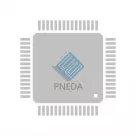FMEA and Intelligent robots: The key to improving robot reliability and safety

With the rapid development of science and technology, intelligent robots have penetrated into all aspects of our lives, from industrial production to home services, from deep-sea exploration to space exploration, they are everywhere. However, with the increasing application, the complexity and uncertainty of the robot system are also increasing, and how to ensure the safety and reliability of intelligent robots has become an urgent problem to be solved. At this point, FMEA (Failure Mode and Impact Analysis) plays an indispensable role as a preventive quality tool.
FMEA (Failure Mode and Effect Analysis) is a systematic failure analysis method, mainly used to identify potential failure modes that may exist in a system, product or process and their impact on system performance and safety. So that measures can be taken to reduce the risk of failure during the design phase or operation. As the representative of the combination of artificial intelligence and machinery manufacturing, intelligent robot has been applied more and more widely, and improving the reliability and safety of robot has become the focus of attention.
Firstly, the application of FMEA method to the development and design stage of intelligent robots can effectively identify potential fault modes, including hardware faults (such as sensor faults, actuator faults, etc.) and software faults (such as algorithm vulnerabilities, program errors, etc.). By analyzing the possible consequences of various failure modes, evaluating their severity, frequency and detection capabilities, and identifying critical faults and priority directions, the design can be improved and the reliability of the robot can be enhanced.
Secondly, FMEA can also be applied in the manufacturing and assembly process of intelligent robots. By analyzing the possible faults in each link of the production line, the root causes of quality problems are identified, and corresponding improvement measures are formulated to improve the stability and consistency of the production process, thereby reducing the generation of defective products and ensuring the reliability and safety of the robot.
In addition, FMEA can also help the operation and maintenance of intelligent robots, timely detection of potential faults, the development of preventive maintenance plans, extend the service life of the robot, reduce the number of maintenance, improve the annual operating time, and ensure the safety and reliability of the robot in the working process.
It should be emphasized that the effective implementation of the FMEA method requires sufficient expertise and experience support, and close cooperation and information sharing among team members is also crucial. In addition, with the continuous development of artificial intelligence technology and the continuous expansion of intelligent robot application scenarios, FMEA method is also constantly evolving and improving to adapt to new challenges and needs, improve the reliability and safety of intelligent robots, and better serve human society.
The Products You May Be Interested In
 |
ASPI-0804T-4R7M-T | FIXED IND 4.7UH 5.4A 18 MOHM SMD | 8388 More on Order |
 |
ASPIAIG-S8050-4R7M-T | FIXED IND 4.7UH 4.6A 23MOHM | 6120 More on Order |
 |
AIAP-01-1R0K-T | FIXED IND 1UH 3.3A 30 MOHM TH | 68790 More on Order |
 |
AIRD-02-151K | FIXED IND 150UH 4A 98 MOHM TH | 7776 More on Order |
 |
AMPMEFB-37.5000T3 | MEMS OSC XO 37.5000MHZ CMOS SMD | 3996 More on Order |
 |
AMPMEDA-12.0000T3 | MEMS OSC XO 12.0000MHZ CMOS SMD | 8784 More on Order |
 |
AMPMDGD-15.3600T3 | MEMS OSC XO 15.3600MHZ CMOS SMD | 6012 More on Order |
 |
AMPMAGB-37.5000T3 | MEMS OSC XO 37.5000MHZ CMOS SMD | 8604 More on Order |
 |
AMPMEGA-15.0000T | MEMS OSC XO 15.0000MHZ CMOS SMD | 3348 More on Order |
 |
AMPMEFC-15.3600T | MEMS OSC XO 15.3600MHZ CMOS SMD | 6030 More on Order |
 |
AMPMAGD-16.3840T | MEMS OSC XO 16.3840MHZ CMOS SMD | 3078 More on Order |
 |
AMPMAGB-35.3280T | MEMS OSC XO 35.3280MHZ CMOS SMD | 5814 More on Order |
 |
ASTMUPCD-33-32.000MHZ-EJ-E-T3 | MEMS OSC XO 32.0000MHZ LVCMOS | 3454 More on Order |
 |
AX7MCF1-2000.0000T | XTAL OSC XO 2.0000GHZ CML SMD | 7902 More on Order |
 |
AX5DAF3-725.0000C | OSC XO 725MHZ 3.3V LVDS | 2628 More on Order |
 |
AX5MBF1-500.5000C | OSC XO 500.5MHZ 2.5V CML | 7470 More on Order |
 |
ASTMHTA-24.576MHZ-ZK-E-T | MEMS OSC XO 24.5760MHZ LVCMOS | 4734 More on Order |
 |
ASTX-H12-19.200MHZ-T | XTAL OSC TCXO 19.2000MHZ HCMOS | 5022 More on Order |
 |
ASTMHTA-125.000MHZ-AJ-E | MEMS OSC XO 125.0000MHZ LVCMOS | 2016 More on Order |
 |
ABM12W-33.0000MHZ-6-B1U-T3 | CRYSTAL 33.0000MHZ 6PF SMD | 2214 More on Order |
 |
ABM11W-38.0000MHZ-4-B2U-T3 | CRYSTAL 38.0000MHZ 4PF SMD | 8424 More on Order |
 |
ABM11W-38.0000MHZ-4-D2X-T3 | CRYSTAL 38.0000MHZ 4PF SMD | 7182 More on Order |
 |
ABM11W-37.0000MHZ-8-B1U-T3 | CRYSTAL 37.0000MHZ 8PF SMD | 2970 More on Order |
 |
ABM8W-30.3200MHZ-6-J1Z-T3 | CRYSTAL 30.3200MHZ 6PF SMD | 8190 More on Order |









